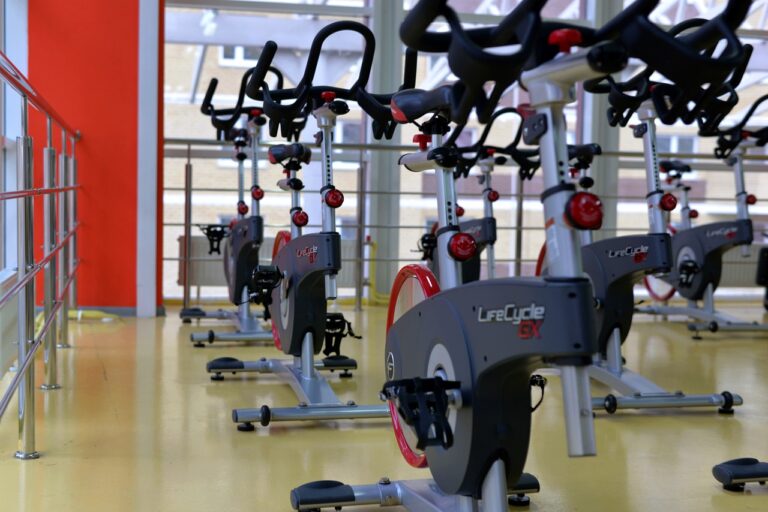The Role of Mindfulness in Coping with Rheumatology Flares: Betbhai99, Radhe exchange download apk, 99 exchange login
betbhai99, radhe exchange download apk, 99 exchange login: Living with a rheumatologic condition can be challenging, especially when experiencing flares. These flares can bring about intense pain, stiffness, fatigue, and overall discomfort, making it difficult to go about your daily activities. However, there are ways to cope with these flares, one of which is through the practice of mindfulness.
What is mindfulness, and how can it help in coping with rheumatology flares?
Mindfulness is a mental practice that involves focusing on the present moment without judgment. It is about being fully aware of your thoughts, emotions, and physical sensations in the here and now. When it comes to coping with rheumatology flares, mindfulness can be a powerful tool in managing pain and reducing stress levels.
Here are some ways in which mindfulness can help in coping with rheumatology flares:
1. Increased pain tolerance: By practicing mindfulness, you can learn to observe your pain without reacting to it. This can help increase your pain tolerance and reduce the intensity of the pain you experience during flares.
2. Reduced stress: Flares can often be triggered or exacerbated by stress. Mindfulness techniques such as deep breathing, meditation, and body scans can help reduce stress levels, leading to less severe flares.
3. Improved sleep: Rheumatology flares can interfere with your sleep, leading to fatigue and exacerbating your symptoms. Mindfulness practices can help calm the mind and body, promoting better sleep quality.
4. Enhanced emotional well-being: Living with a chronic condition can take a toll on your emotional well-being. Mindfulness can help you cultivate a sense of acceptance and self-compassion, allowing you to navigate the ups and downs of flares more effectively.
5. Better pain management: Mindfulness-based pain management techniques, such as mindful walking or mindful eating, can help divert your focus away from pain and discomfort, making it more bearable to deal with flares.
6. Improved quality of life: Overall, practicing mindfulness can enhance your quality of life by helping you cope with the challenges of rheumatology flares in a more positive and proactive way.
It’s important to note that mindfulness is not a cure for rheumatologic conditions or flares. However, it can be a valuable complementary tool in your coping toolbox, along with medications, physical therapy, and other treatments prescribed by your healthcare provider.
How can you incorporate mindfulness into your routine?
There are various ways in which you can incorporate mindfulness into your daily routine to help cope with rheumatology flares. Here are some practical tips to get you started:
1. Start with short mindfulness exercises: Begin with short mindfulness exercises, such as deep breathing or body scans, for just a few minutes each day. Over time, you can gradually increase the duration of your practice.
2. Practice mindfulness during activities: You can incorporate mindfulness into everyday activities, such as eating, walking, or doing household chores. Focus on the sensations and movements involved in each activity without judgment.
3. Use mindfulness apps or resources: There are numerous mindfulness apps, websites, and books available that can guide you through mindfulness practices and meditation techniques. Find one that resonates with you and make it a part of your routine.
4. Join a mindfulness group or class: Consider joining a mindfulness group or class in your community or online. Connecting with others who are also practicing mindfulness can provide support and encouragement.
5. Be patient and kind to yourself: Remember that mindfulness is a skill that takes time and practice to develop. Be patient with yourself and approach your practice with kindness and self-compassion.
By incorporating mindfulness into your coping strategy for rheumatology flares, you can cultivate a greater sense of resilience, acceptance, and inner peace in the face of challenges. Remember that every individual is different, so it’s essential to find what works best for you and your unique needs.
FAQs:
Q: Can mindfulness cure rheumatologic conditions?
A: Mindfulness is not a cure for rheumatologic conditions but can be a valuable complementary tool in managing symptoms and coping with flares.
Q: How long does it take to see the benefits of mindfulness in coping with flares?
A: The benefits of mindfulness can vary from person to person. Some individuals may experience immediate relief, while others may need more time to see significant improvements.
Q: Can mindfulness practices be done during flares?
A: Yes, mindfulness practices can be beneficial during flares as they can help in managing pain, reducing stress, and promoting a sense of calmness and relaxation.
Q: Is mindfulness suitable for everyone with rheumatologic conditions?
A: Mindfulness is generally safe and beneficial for most individuals. However, it’s essential to consult with your healthcare provider before starting any new practice or exercise routine, especially if you have specific health concerns or conditions.
In conclusion, mindfulness can be a powerful tool in coping with rheumatology flares, offering benefits such as increased pain tolerance, reduced stress, improved sleep, and enhanced emotional well-being. By incorporating mindfulness practices into your daily routine and cultivating a mindful mindset, you can better navigate the challenges of flares and improve your overall quality of life.







